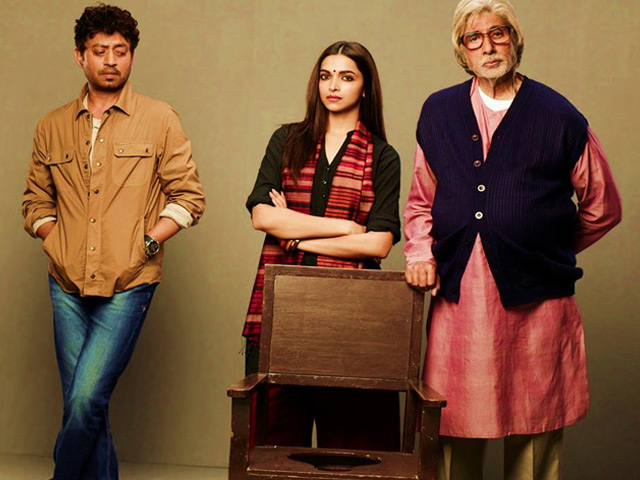What would Satyajit Ray have made of Piku? There was a sundry of questions running through my head as I left the cinema. There is no doubt he would have agreed that the central female protagonist of Piku (Deepika Padukone) educes the classical Ray woman: progressive, perceptive and selfless. Some critics have commented that Piku’s unconventional characterization is not representative of Indian cinema. I’m not certainly swayed by this argument. A lineage of salient female characters can be traced to Ray and Ghatak, and also Bengali film culture. Just a desultory glance at Ray’s work is palpable enough. One only has to consider films such as Kanchenjungha, Charulata, Devi and Mahangar to recognise that Piku (yet another Ray reference to his 1980 short Pikoo’s Day) is already familiar to us a Bengali archetype. Instructively, our first introduction of Piku is framed indoors by the posterized image of Ray. Measured postmodern juxtaposition outlines the communal authorial intents of writer Juhi Chaturvedi and director Shoojit Sircar framing Piku as not only an admirer of Ray (which middle class Bengali isn’t?) but also a hybrid of traditional Bengali femininity and contemporaneous designs. In some respects Piku could easily be classed as a Bengali film, as could Vicky Donor, Chaturvedi and Sircar’s first collaboration, which relatedly explored the comical gradations of contemporary middle class Bengali culture.
The comedy is arguably one of the trickiest film genres to master in any cinema. Some of the best comedies, the ones that have endured, are marked by the lightest of touches. Piku like Vicky Donor mixes comedy and melodrama, exploring relationships, this time between a father and daughter, but applying an observational approach to humour. All of this boils down to the tasty scriptwriting talents of Juhi Chaturvedi, exhibiting a definite ear for sharp, witty dialogue that never feels forced while the plot less narrative adds a welcomed fickleness. Another genre element is at play, the road movie, using the journey to Kolkata (more Ray; Nayak anyone? –although the journey is from Kolkata to Delhi in Ray’s film), exploring themes to do with ancestral origins, identity and disconnect between parents and children. If Piku is the one suffering from familial crises then her father Bashkor Banerjee (Amitabh Bachchan proving yet again he can almost play any type of role with grace and consistency) is a Bhadralok, a snotty, valetudinarian Bengali patriarch with a hilarious bout of constipation servilely dependent on Piku’s daughterly obedience.
It’s too soon to say if this will be remembered as one of Amitabh’s last great roles in the twilight of a singular career but it is certainly one of his most lively in years. Irrfan Khan as Rana, a wayward owner of a taxi service which he has inherited, works as the perfect antidote, striking up a relationship with Piku, affectionately emerging as the realist, an outsider who ever so often imparts a verismo that pries open the guarded mentality of both Piku and Bashkor. Irrfan Khan is a rare actor indeed; no one has been able to shift across independent and mainstream Indian cinema with such ease and success over the years. Along the way Irrfan Khan has notched up many impressive performances. He is surely one of the few actors that most directors are scrambling to work with given his consistency as an actor. Yet this film belongs to Deepika Padukone who is cast against type, delivering her finest performance to date as the vulnerable yet feisty Piku. It is a subtly modest performance, almost de-sexualizing her stardom so that the girl next-door idea notion is acutely visible yet balanced by a wit and intellect that strives for something altogether more Bengali.
Propitiously for a film dealing centrally with death (and shit) both writer and director manage to avoid the trap of mawkishness, aspiring for something sharper in an ending that is a mastery of understatement. This is a film unassumingly about people and the choices they have to make executed with an unashamed simplicity so often lacking in contemporary Indian cinema. Yet have any mainstream UK film critics mentioned this film in their recommendations of the week? No. Why should they? It’s just another film from Bollywood after all and thus deserves to be dismissed at the expense of monolithic American and European cinema.

Leave a comment